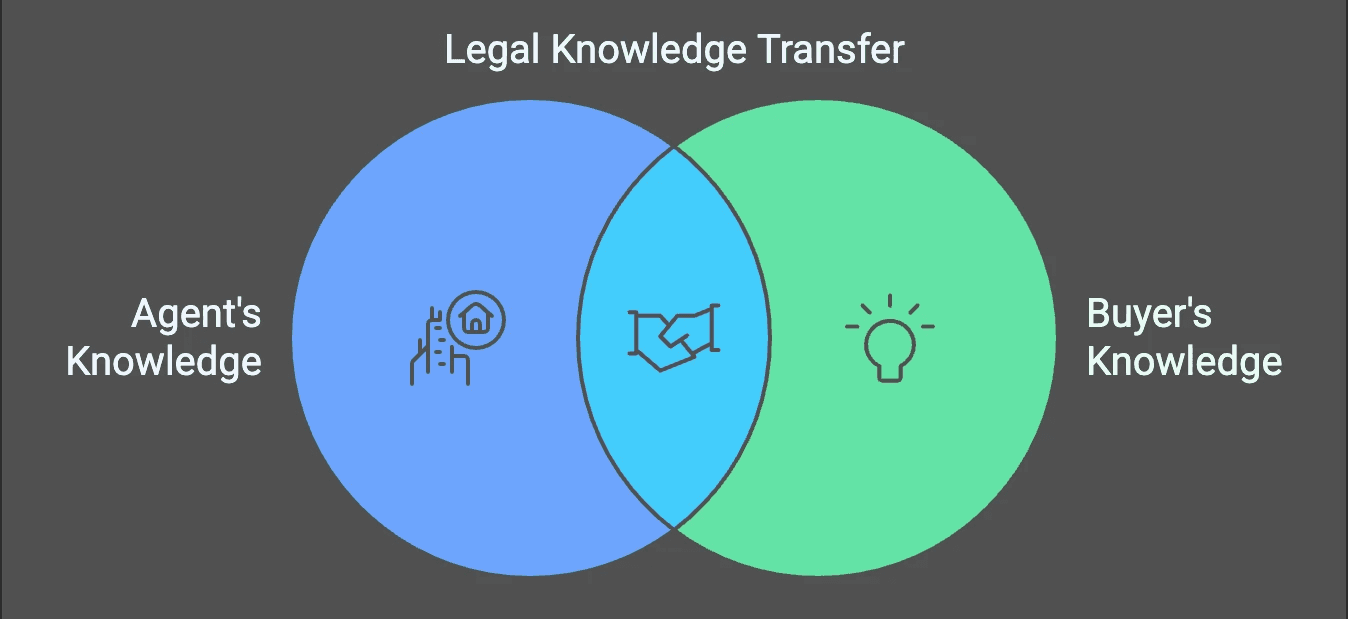What is Imputed Knowledge in Real Estate Transactions?
Imputed knowledge might sound like legal jargon, but it's actually a simple concept that affects every real estate transaction. Think of it as an invisible thread that connects what your real estate agent knows to what you're legally considered to know.
Imputed Knowledge: Knowledge or information that is legally assumed to have been passed from a real estate agent to their client, even if it wasn't directly communicated. When an agent learns important information about a property or transaction, the law treats it as if their client also knows this information.
Understanding Imputed Knowledge
The concept of imputed knowledge exists to protect everyone involved in real estate transactions. If your agent discovers a leaky roof or learns about upcoming construction next door, the law assumes you know about it too - whether or not your agent actually told you. This creates a safety net for buyers and sellers, making sure important information doesn't slip through the cracks.
How Imputed Knowledge Works
Your relationship with your real estate agent is special. They're not just someone helping you buy or sell property - they're your legal representative. When they learn something about a property, it's like you learned it yourself.

Here's what this means in practice:
If your agent spots a crack in the foundation during a showing, you're legally considered to know about it
If your agent receives information about new zoning laws, that knowledge transfers to you
If your agent learns about changes in the neighborhood, you're assumed to know too
Legal Implications and Responsibilities
Both agents and clients need to understand their roles in this knowledge transfer system. Agents must:
Share all relevant information with their clients
Document important discoveries and communications
Keep detailed records of property information
Common Scenarios and Applications
I've seen imputed knowledge play out in many ways during property transactions. For example, during property inspections, your agent might notice:
Water damage in the basement
Signs of pest infestation
Outdated electrical systems
This information becomes part of your legal knowledge base, whether or not you personally saw these issues.
Many people think they're not responsible for information they weren't directly told. That's not true. The law doesn't care if you weren't physically present when your agent learned about a problem - you're still responsible for that knowledge.
Protecting Yourself in Real Estate Transactions
Smart agents maintain detailed records and communicate regularly with their clients. As a buyer or seller, you should:
Ask questions about everything
Get important information in writing
Keep copies of all communications
Imputed knowledge highlights the importance of hiring a TRUSTED real estate agent. We'd love to help you through your journey at Bellhaven Real Estate. We ensure you are up to date on ALL known artifacts throughout the transaction, in writing.
Remember, imputed knowledge connects closely with other real estate principles:
Fiduciary Duty: Your agent's obligation to act in your best interest
Agency Relationships: The legal bond between you and your agent

